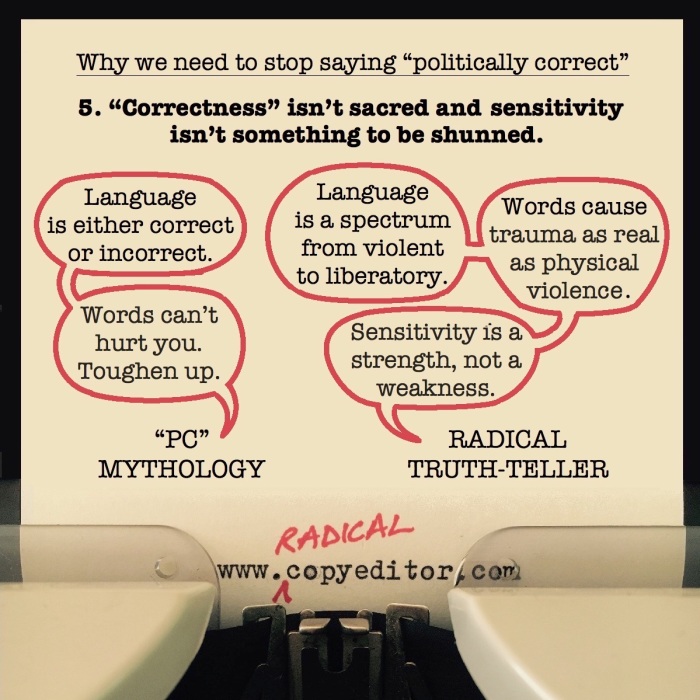
I follow the school of thought that the purpose of language conventions and standards is to help people communicate as effectively as possible across lines of difference, not that their purpose is to promote one “right” or “correct” way of speaking, writing, or being.
Holding “correctness” as sacred means valuing rules more than lives, homogeneity more than diversity, norms more than divergent experiences, and standards more than feelings. There is nothing sacred or inherently valuable about being “correct.” Here’s what’s sacred and valuable: respect, care, agency, empowerment, liberation.
So don’t ask yourself, “Am I being politically correct?”—rather, ask yourself, “Am I being respectful and caring toward the full range of human experience?”
There’s also nothing shameful or wrong about being “sensitive.” Frankly, I am working to build a world where people are sensitive to each other’s feelings and needs, not callous and dismissive of them. I’m working to build a world where being “sensitive” is seen as a strength, not a weakness—where it isn’t disparaged and used as slur to demean women, children, folks with disabilities, and other marginalized people.
So the next time you see or hear someone use the term “politically correct,” help them understand that this term is nothing but an insult directed toward people who are working for equity and compassion in human relations, and it needs to be eradicated.
Go back:
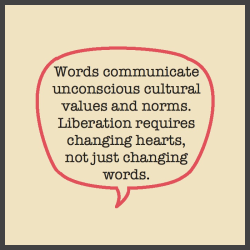
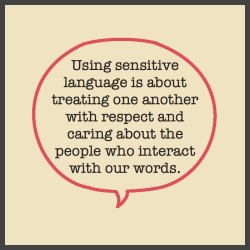
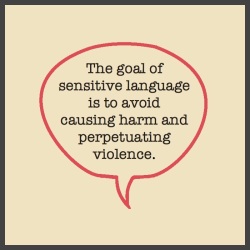
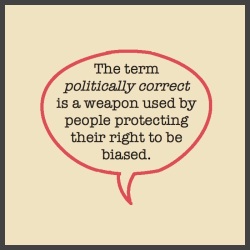
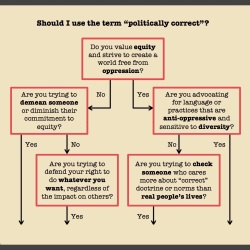

[Description of featured image above: Reason #5 for why we need to stop saying “politically correct”: “correctness” isn’t sacred and sensitivity isn’t something to be shunned. “PC” mythology speech bubbles say: “Language is either correct or incorrect. Words can’t hurt you. Toughen up.” Radical truth-teller speech bubbles say: “Language is a spectrum from violent to liberatory. Words cause trauma as real as physical violence. Sensitivity is a strength, not a weakness.”]